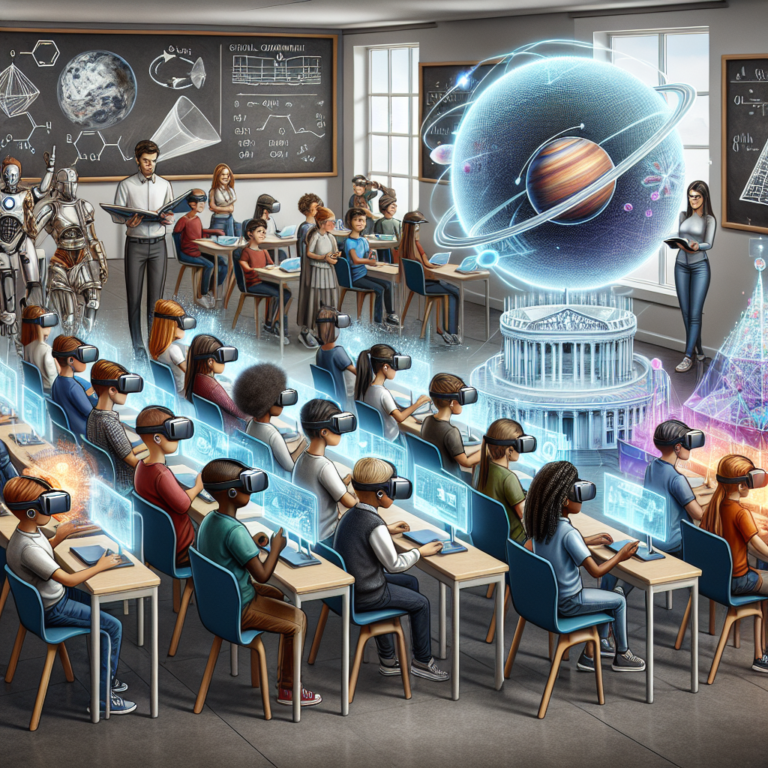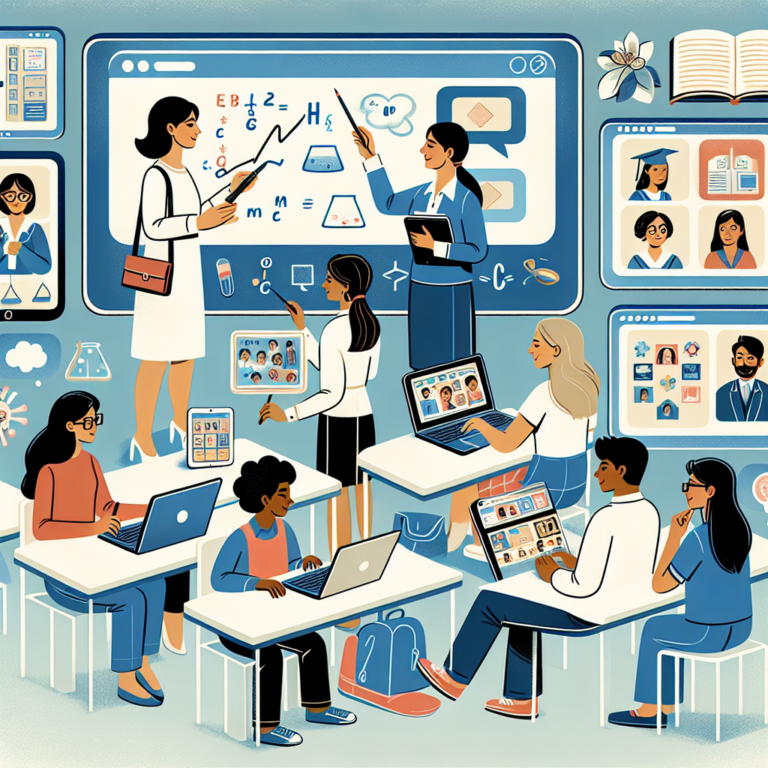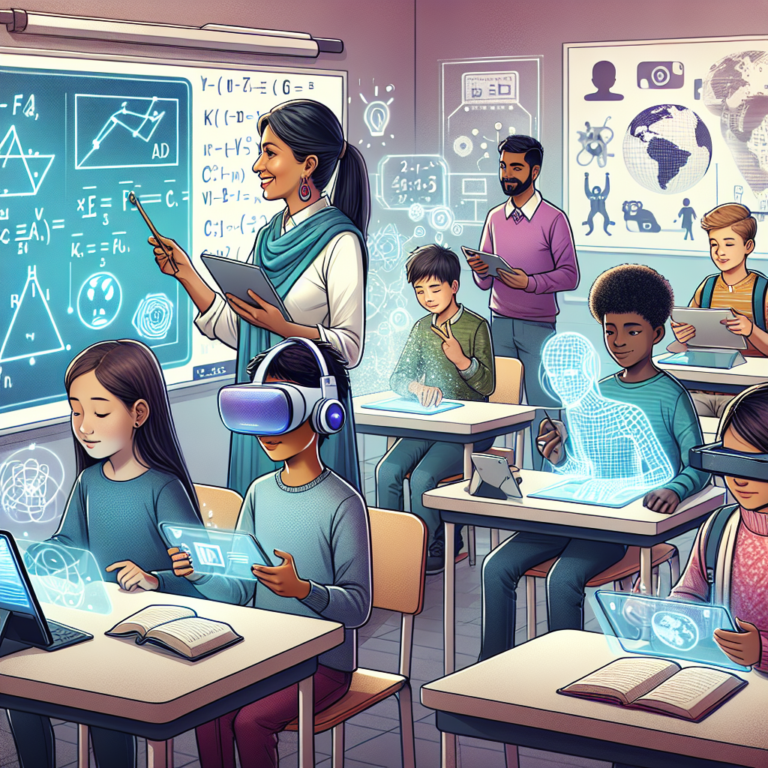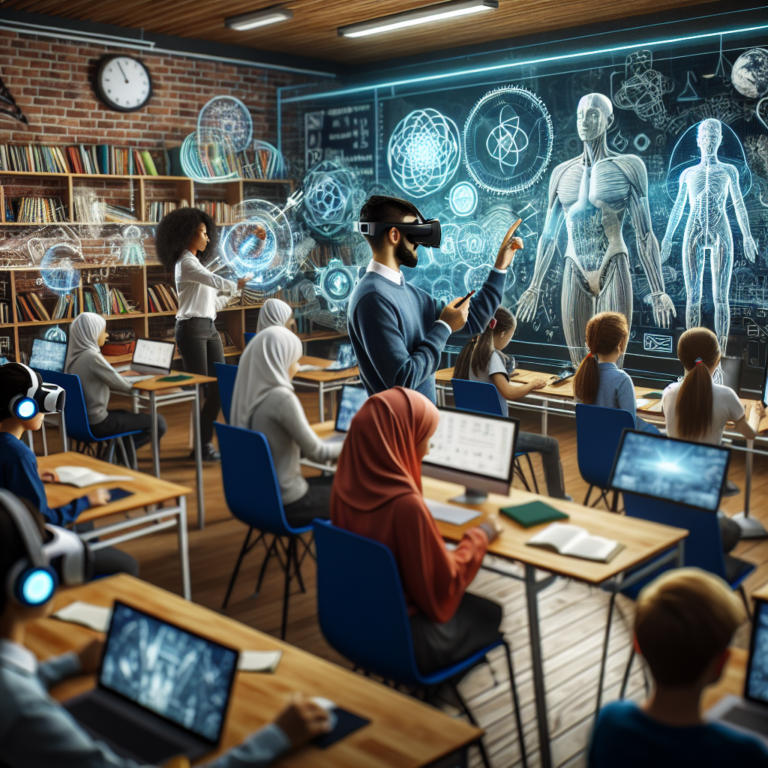Benefits of Integrating Technology in Education
The integration of technology in education is no longer a novelty. It’s a necessity.
In this digital age, the importance of educational technology is undeniable. It has transformed the way we teach and learn, making education more engaging, personalized, and accessible.
But what exactly does it mean to integrate technology in education? How does it enhance learning experiences and outcomes?
This article aims to answer these questions. We will delve into the benefits of integrating technology in education, from personalizing learning experiences to preparing students for the digital age.
Whether you’re an educator, a policymaker, or simply interested in the intersection of technology and education, this article will provide you with a comprehensive understanding of the subject. Let’s explore the transformative power of technology in education.
The Evolution of Educational Technology
The journey of technology in education has been a fascinating one. From the humble beginnings of chalkboards and textbooks, we have now entered an era of interactive whiteboards, tablets, and educational software.
This evolution has not only changed the tools we use but also the way we approach education. Technology has expanded the scope of learning, enabling us to create more engaging, interactive, and personalized learning experiences. It’s a testament to the importance of educational technology in shaping the future of education.
Defining Educational Technology in Modern Classrooms
Educational technology, often referred to as EdTech, encompasses a broad range of tools and strategies. It includes everything from digital textbooks and online learning platforms to virtual reality experiences and artificial intelligence-driven tutoring systems.
These tools are not just add-ons to traditional teaching methods. They are integral components of modern classrooms, transforming the way we teach and learn. They allow for a more interactive, engaging, and personalized learning experience, highlighting the importance of integrated technology in education.
Personalized Learning Through Technology
One of the most significant benefits of technology in education is the ability to personalize learning. With the help of adaptive learning tools, educators can tailor instruction to meet the unique needs of each student.
These tools use data to adjust the pace and level of instruction, ensuring that all students are challenged but not overwhelmed. This personalized approach not only improves student engagement but also enhances learning outcomes, demonstrating the importance of educational technology in education.
Enhancing Engagement and Motivation
Technology also plays a crucial role in enhancing student engagement and motivation. Interactive learning tools, such as digital whiteboards and educational software, make learning more engaging and fun.
These tools allow students to actively participate in their learning, rather than passively receiving information. This active engagement not only increases motivation but also promotes deeper understanding, further highlighting the importance of integrating technology in education.
Academic Performance and Technology Integration
The integration of technology in education has shown promising results in improving academic performance. Research indicates that students who use technology for learning often show better outcomes than those who do not.
Moreover, technology allows for personalized learning experiences, catering to individual learning styles and needs. This personalization can lead to improved understanding and retention of information, ultimately enhancing academic performance. The importance of educational technology in education, therefore, cannot be overstated.
Preparing Students for the Digital Age
In the digital age, technology literacy is no longer a luxury but a necessity. Integrating technology in education equips students with the digital skills they need to thrive in the 21st-century job market.
Moreover, technology in education fosters critical thinking and problem-solving skills. These are essential competencies in a world increasingly dominated by technology and data. Thus, the importance of educational technology extends beyond the classroom, preparing students for a rapidly changing world.
Collaborative Learning and Technology
Technology plays a pivotal role in facilitating collaborative learning. Digital tools like shared documents, online discussion boards, and project management platforms enable students to work together seamlessly, regardless of their physical location.
Moreover, technology fosters a sense of global citizenship and cultural awareness. Through technology, students can connect with peers from different cultures, exchange ideas, and broaden their perspectives. This highlights the importance of integrated technology in fostering a collaborative and inclusive learning environment.
Extending Learning Beyond the Classroom
Technology in education extends learning beyond the confines of the classroom. With the advent of online resources, virtual field trips, and e-learning platforms, students can explore a wealth of knowledge at their own pace and convenience.
Furthermore, mobile technology supports anytime, anywhere learning, breaking down the barriers of time and space. This underlines the importance of educational technology in creating flexible and accessible learning experiences.
Challenges and Considerations in Technology Adoption
While the benefits of integrating technology in education are numerous, it’s not without its challenges. Issues such as the digital divide, where not all students have equal access to technology, can hinder effective implementation. Additionally, the need for teacher training to effectively use these learning tools is a significant consideration.
Moreover, the importance of cybersecurity and data privacy in educational technology cannot be overstated. As we increasingly rely on digital platforms for teaching and learning, ensuring the safety and privacy of students’ information becomes paramount.
The Future of Technology in Education
Looking ahead, the future of technology in education is promising and exciting. Emerging trends such as artificial intelligence, virtual and augmented reality, and adaptive learning technologies are set to further revolutionize the educational landscape, offering unprecedented opportunities for personalized, engaging, and effective learning experiences.








